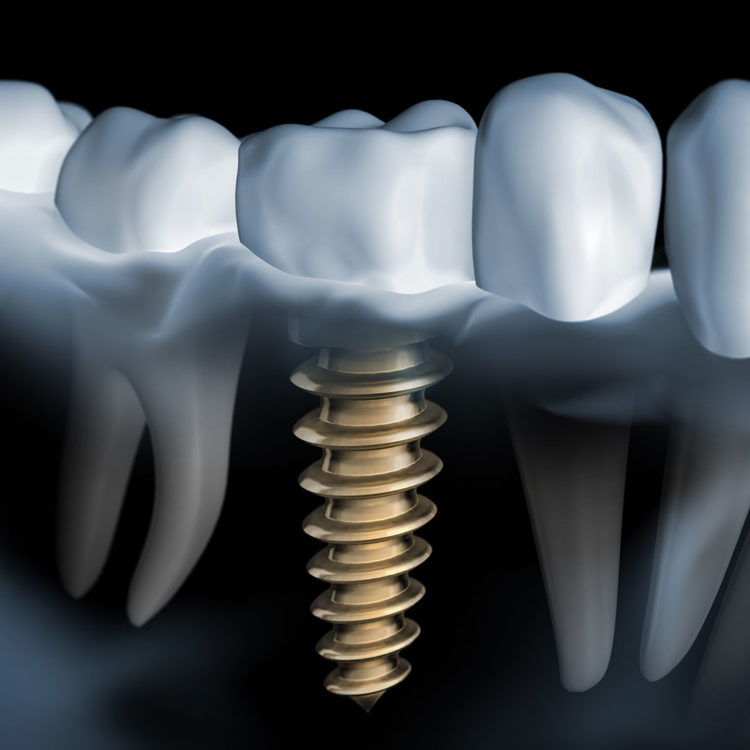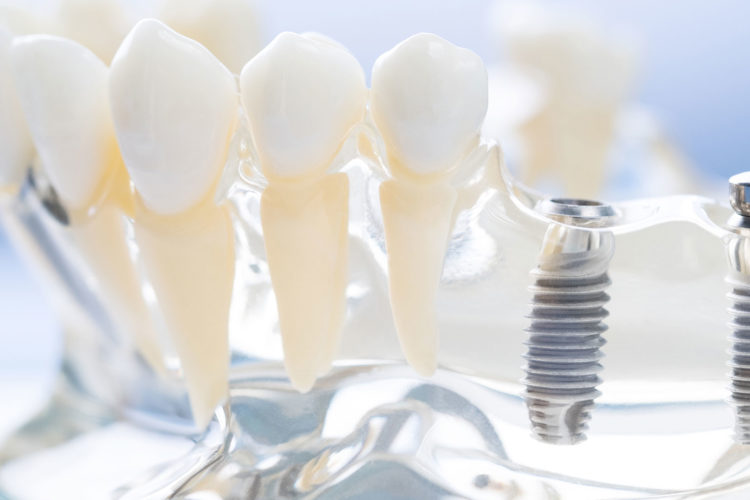IMPLANTOLOGY
What is a dental implant?
Dental implants are the best alternative to natural teeth, because they replace both the root and the body of the tooth. An implant consists of two parts: a titanium steel peg that is surgically implanted into the jaw, and a porcelain crown which sits on top of the peg and effectively replaces the tooth.
Dental implants are the only treatment that actually arrest bone loss in the jaw. Dental implants are also more comfortable than most other treatments for missing teeth.
They are definitely more comfortable than dentures, which may slip, click, cause sores, or even fall out if patients aren’t careful. A very important benefit of dental implants is that they give patients improved self-confidence over other methods of tooth replacement.
With dental implants patients can enjoy all the foods they like and are never worried about their false teeth in social situations. Dental implants offer patients a lifetime of better chewing and more confidence because they function just like real teeth.

SCHEDULE YOUR FIRST CHECK-UP
Success rates of dental implants vary, depending on where in the jaw the implants are placed but, in general, dental implants have a success rate of up to 98%. With proper care (see below), implants can last a lifetime.
Dental implant process is the development of an individualized treatment plan. The plan addresses your specific needs and is prepared by the dentist. The dentist approach provides coordinated care based on the implant option that is best for you.
The tooth root implant, which is a small post made of titanium, is placed into the bone socket of the missing tooth. As the jawbone heals, it grows around the implanted metal post, anchoring it securely in the jaw. The healing process can take from six to 12 weeks.
Your dentist also can match the color of the new teeth to your natural teeth. Because the implant is secured within the jawbone, the replacement teeth look, feel, and function just like your own natural teeth.
It will take time to integrate with your natural jawbone material. The length of time for this healing varies based on how much bone structure was lost and how quickly your body heals, but in general it takes 3-4 months.
You are not in good general health.
You don’t have healthy gums.
You are suffering from excessive bone loss.
You are under 15 years old.







